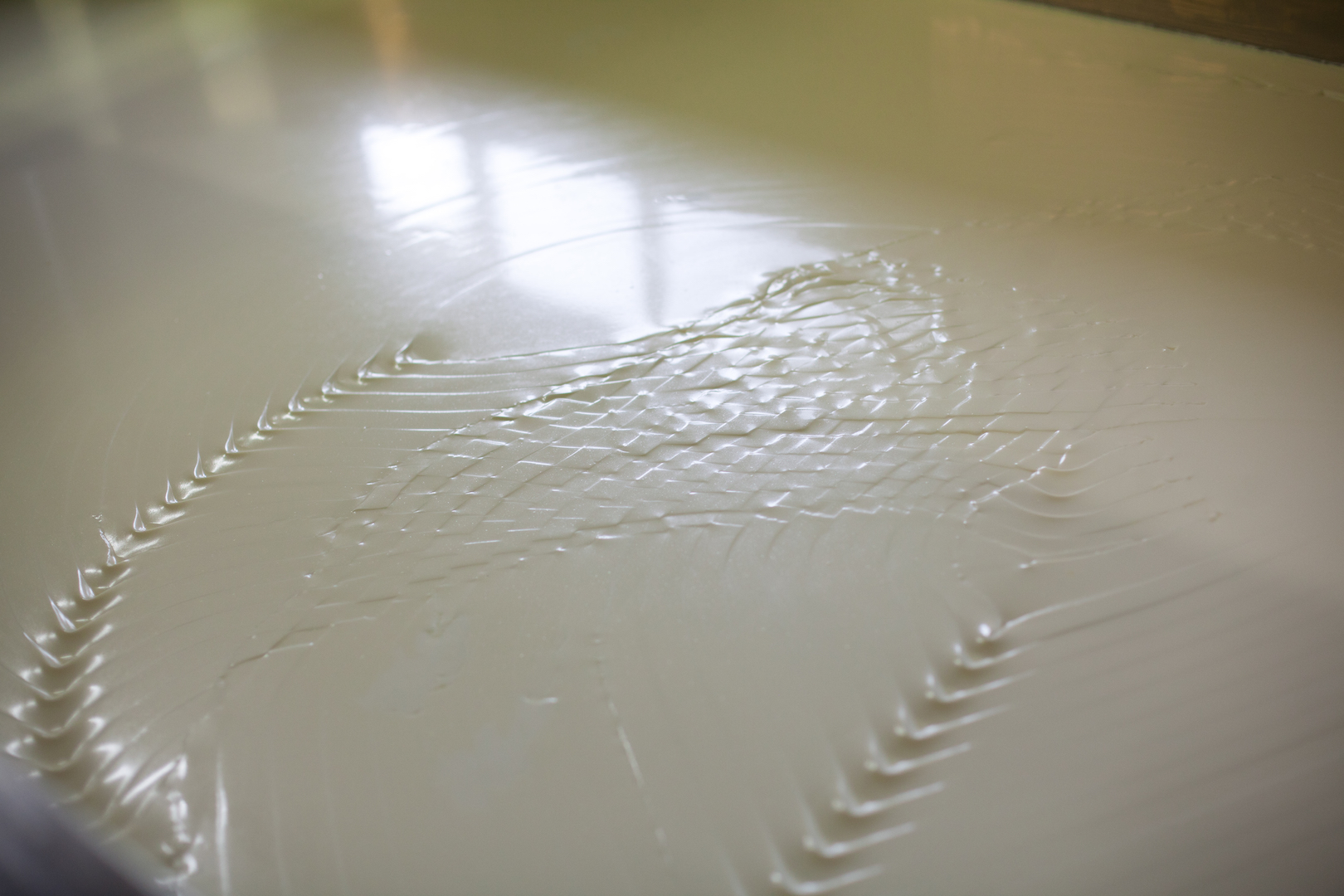Records show that unpasteurised cheddar was being made at Westcombe Farm by Mr & Mrs Brickell in the early 1900s, and before that by Edith Cannon in 1890. This reputably formidable lady made a cheddar that was legendary in these parts – and which inspired the Brickells – so we look to her for the origins of our dairy.
The 20th century had its fair share of tumultuous years, and the fortunes of Westcombe Dairy waxed and waned with it. When Wilfred Clothier married Phyllis Brickell (daughter of the original cheesemakers) he expanded the business.
At the time, Westcombe thrived on the quality of its cheddar and the unique properties of the local Somerset terroir. This was an artisanal product made with passion and skill in a pre-industrial food era. As new unions were formed, other farms became allied with Westcombe and the business grew.
Come the Second World War and the widespread changes to farming and agriculture it brought, many of Britain’s smaller dairies were forced to change their operations to aid the war effort. Fortunately for Westcombe, cheddar was regarded as a wholesome foodstuff and its production was greatly encouraged. Only the introduction of pasteurisation around this time made any real impact on the practices of the dairy.
In the decades following the war, as austerity was tackled by industrial advances and the supermarkets began their rise to the top of the food chain, Westcombe kept on making consistently characterful cheese.
During the 1960s, Richard Calver joined the business as a partner at one of the three farms. Richard's dedication to improving the condition of the farm’s pasture land and the quality of the milk it produced helped Westcombe keep its standards high and face the challenges of the day.
By the 1970s, with the growing commercial need for large scale production, Westcombe grew with the times and moved into the manufacture of non-traditional block cheddar – a product that was much better suited to the fast-moving and mass market approach favoured by the supermarkets. While the standard of the cheese was still very good, the nature of it didn’t really utilise the unique potential of Westcombe’s terroir.
In the 1980s, seeing quality as the ultimate saviour of the business, Richard Calver and fellow director Christine Gore (granddaughter of the Brickells) decided it was time to make a change at Westcombe. Believing that the continued production of block cheddar was unrealistic, they looked back to the heyday of Westcombe and set about returning the dairy to the production of traditional Somerset Cheddar using unpasteurised milk.
The old cheese factory was knocked down, and today’s modern dairy was built. A new cheddar was conceived – based on Edith Cannon’s original prize-winning recipe – which sought to recapture the quality and prestige of the past. During the 1990s and into the 21st century, Westcombe honed its traditional cheesemaking, sensing the growing demand for quality British cheeses and meeting consumer’s newly awakened tastes head on.
However, it wasn’t until Richard Calver’s son Tom entered the business that the high quality cheeses Westcombe is famed for today really came into being.
A trained chef, Tom brought with him experience in some prestigious London eateries, as well as an apprenticeship at Neal’s Yard Dairy. He came back to Somerset to work in the dairy, where he set about understanding, and then perfecting, the art of making traditional unpasteurised cheddar.
Tom took over cheesemaking at Westcombe Dairy in 2008. Encouraged by his old Neal’s Yard mentor Randolph Hodgson, he sought to improve the quality of the cheese by mastering every aspect of its process, from ensuring the milk was as good as possible, to understanding the interplay of traditional cultures and rennets on the milk’s natural bacteria.
Tom moved the dairy away from mechanisation as much as possible and encouraged an intuitive approach that seeks to express the milk’s true character. He realised that the key to making great cheese lies in understanding the daily-changing character of the milk – as well as always striving for perfection in transforming it into wholesome and flavoursome cheese.
Today, the success of Westcombe Dairy lies in our ability to exploit the local Westcombe terroir and let it enhance our cheesemaking. From the richness of our milk to the special conditions of our cheese ageing room, everything we do revolves around letting the milk express itself in the finished cheese.


